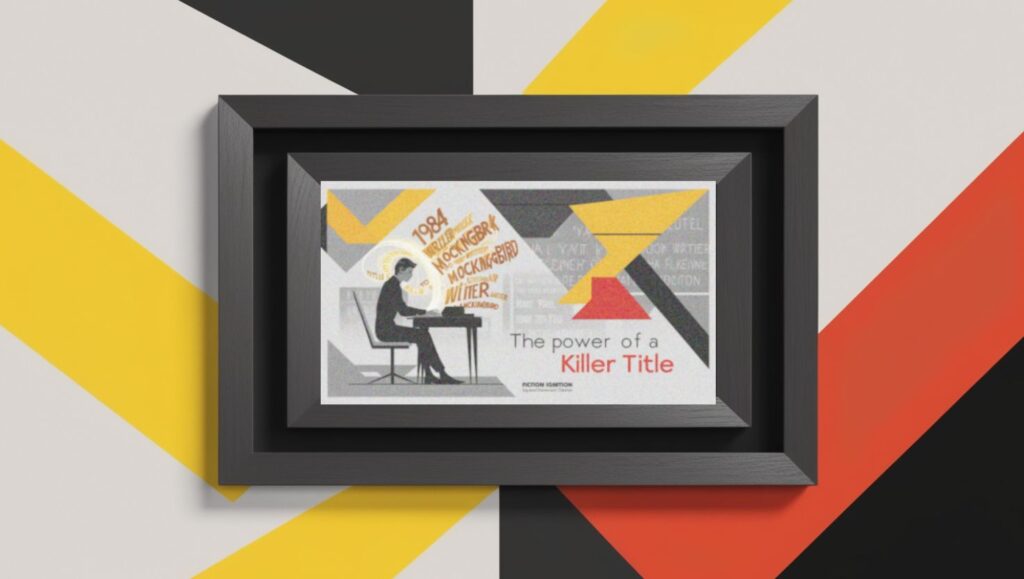Greetings, Fiction Igniters!
It’s me, once again, your Fiery Flamekeeper, Yoshi Maeshiro, ready to guide you on this wild ride of words and wealth. Today, I want to chat about something that might seem a little off-topic for us literary rebels—but trust me, mastering your money is as essential as mastering your plot twists.
I’m talking about finance for writers: the best strategies to save and invest your money. Whether you’re a narrative ninja or a literary pyromaniac, your creative dreams deserve a strong financial foundation. Let’s dive into my top 10 actionable tips, with plenty of personal anecdotes, famous examples, and down-to-earth advice to help you build your own empire.
1. Mastering the Basics: The Richest Man in Babylon and My Financial Awakening
I still remember the day I cracked open The Richest Man in Babylon. Before that, I was living day to day, not really knowing anything about money or investments. This book was like a secret key to a hidden door: it taught me that financial wisdom doesn’t have to be rocket science. The simple parables helped me understand the power of saving and investing early. Suddenly, I saw that every coin saved was a step towards freedom—much like each word I type on my manuscript is a step towards my dream.
For all you wordsmith warriors out there, the lesson is clear: if a book can transform my financial outlook, it can do the same for you. Start with the basics, and soon you’ll be exploring more complex ideas like value investing and dollar averaging. Remember, every epic journey begins with a single step!
2. Embrace the Wisdom of Buffett and Munger
Let’s talk about two heavyweights in the world of investing—Warren Buffett and Charlie Munger. These financial legends aren’t just names to drop at cocktail parties; their strategies are time-tested blueprints for success. I dove into their philosophies to understand the difference between investing and trading. Buffett taught me the value of patience and long-term planning, while Munger stressed the importance of sound decision-making and learning continuously.
For instance, while trading might tempt you with quick wins (much like the rapid twists in a thriller), investing is more about steady growth—think of it as slowly building a rich backstory for your financial future. As narrative ninjas, we appreciate the importance of a well-developed plot, and your investment portfolio is no different.
Actionable Tip: Follow their lead by reading up on their annual letters and embracing a mindset of disciplined, long-term planning. Even if you struggle with long-term plans (hey, my ADHD sometimes turns me into a scatter-brained scribe), start small and build consistency over time.
3. Understand Your Money Mindset
Are you infected by the “starving artist” mental virus?
Ever catch yourself thinking, “Money is evil” or “Artists shouldn’t care about cash”? I’ve been there. I used to believe that money was this elusive, almost unworthy force—until I realized that my unconscious beliefs were sabotaging my potential. Just as every character in your story has a backstory, your financial mindset has a history that can either propel you forward or hold you back.
Spend some time reflecting on your beliefs about money. Ask yourself: Are you subconsciously clinging to the notion that financial success is at odds with creative authenticity? The truth is, understanding and reprogramming these beliefs can empower you to pursue wealth without compromising your art. When you change your internal narrative, you set the stage for success both on the page and in your bank account.
Actionable Tip: Write down any limiting beliefs you have about money, and then flip the script. Embrace a narrative where financial savvy is part of your artistic genius.
4. Investing vs. Trading: Know the Difference
This one’s a game-changer, my literary comrades. Learning the difference between investing and trading is like distinguishing between a well-crafted epic and a series of flash fiction. Trading can be exciting—full of short-term adrenaline—but investing is about the long haul, like slowly building a rich, intricate world in your novel.
- Investing is your long-term friend. Think of it like your classic heroes—steadily growing, adapting, and winning over time.
- Trading is more like a fast-paced action scene; it’s thrilling, but risky if you’re not careful.
- Value Investing involves finding hidden gems, much like unearthing a forgotten literary masterpiece.
- Dollar Averaging is like writing a little every day; you consistently invest a set amount over time, regardless of market ups and downs.
As someone who sometimes struggles with designing and following long-term plans (thanks, ADHD!), I’ve learned that even a small, consistent investment strategy can yield incredible results over time.
Actionable Tip: Experiment with dollar averaging if long-term planning feels overwhelming. Start by setting aside a small percentage of your income each month and let compound interest work its magic.
5. The Limits of Formal Education: A Lesson from the Mines
Did you know that school and formal education was invented by mine owners in order to shape the sons of the workers into submissive and obedient employees? Heck yeah!
Formal education was designed to mold us into good employees rather than independent creators. In the mining communities, the focus was on becoming reliable workers—efficient and obedient. But as many of you narrative ninjas know, true creative freedom comes from being your own boss, charting your own course.
Formal schooling often neglects the lessons of entrepreneurship and self-management. It doesn’t teach you how to manage your money, how to invest in your future, or how to negotiate your worth as a creative professional. This system might have worked for the children of mine workers, but for people interested in writing as a professional gig, it just sucks. It leaves us unprepared for the modern world of freelance, self-publishing, and digital marketing.
Actionable Tip: Supplement your education with practical financial knowledge. Read books, attend workshops, and follow online resources (hello, DigitalMarketer.com and Russell Brunson!) to become not just a great writer, but a smart businessperson.
6. Structure is Your Secret Weapon
Here’s a truth bomb for all my literary pyromaniacs: structure matters. Whether you’re penning a novel or managing your finances, a solid routine is essential. Think about Michael Jordan. Even he, a paragon of discipline on the court, struggled after leaving the structured environment of professional sports. Without a system in place, even the best of us can lose our way.
I’ll be honest—my ADHD symptoms make long-term planning a challenge. I thrive when someone is keeping me accountable. That’s why building a structured daily routine, especially one that includes regular saving and investing, is so important. Structure isn’t about stifling creativity; it’s about creating the conditions where creativity can flourish without the chaos of financial instability.
Actionable Tip: Create a daily or weekly shedule that includes dedicated time for both writing and managing your finances. Even a rough outline can provide the framework you need to stay on track.
7. Beware the Pitfalls: Lessons from Bill Finger and Beyond
Let’s get real for a minute: the creative world can be a bit of a financial minefield. I’m reminded of stories like that of Bill Finger, the unsung hero behind Batman, who was swindled by Bob Kane and DC. And who could forget Walt Disney, who lost his first break-out cartoon character, Oswald the Lucky Rabbit, because he didn’t own the right to his own creation. These cautionary tales aren’t meant to discourage you, but rather to arm you with knowledge.
Many writers and artists have fallen prey to exploitative contracts, often because they lacked basic business savvy. It’s a painful lesson that financial ignorance can leave you vulnerable. As narrative ninjas, we must learn to protect our creative rights and our bank accounts.
Actionable Tip: Always educate yourself about contracts and negotiations. If something sounds too good to be true, dig deeper. Consider hiring a trusted advisor or doing your own research to avoid common pitfalls.
8. The Modern Era: Self-Publishing, Digital Marketing, and AI
We live in an era where self-publishing and digital marketing aren’t just alternatives—they’re necessities. With platforms powered by AI and social media, the old guard of publishing is rapidly changing. This shift means that every creative professional must learn not only the art of storytelling but also the art of financial self-management.
I’ve found incredible resources that blend creativity with business acumen. For instance, reading the Wall Street Journal and following finance-related social media accounts can spark ideas for new stories while keeping you informed about the economic landscape. Meanwhile, digital marketing gurus like Russell Brunson and sites like DigitalMarketer.com offer insights that can help you build and promote your brand.
Actionable Tip: Dedicate time each week to learn about digital marketing and finance. The knowledge you gain today can help you pivot quickly in tomorrow’s ever-evolving creative marketplace.
9. Actionable Tips for Saving and Investing
Now, let’s get down to brass tacks, my wordsmith warriors. Here are some practical, actionable tips to start saving and investing wisely:
- Budget Like a Boss: Write down your monthly income and expenses. This might sound mundane, but knowing exactly where your money is going is the first step to reclaiming control.
- Automate Savings: Set up an automatic transfer to a savings or investment account each payday. This takes the guesswork out of saving and ensures you’re consistently building your nest egg.
- Start Small, Dream Big: Even if you can only save a little bit at first, every dollar counts. Over time, those dollars add up, just like every word contributes to a masterpiece.
- Diversify Your Investments: Don’t put all your creative energy—or your money—into one project. Spread your investments across different avenues, be it index funds, mutual funds, or even a little side hustle.
- Educate Yourself Continuously: Whether it’s reading up on new investment strategies or brushing up on digital marketing, continuous learning is key to staying ahead in the game.
These aren’t just tips—they’re the building blocks of financial freedom. Remember, every successful writer was once a beginner who learned to balance passion with pragmatism.
10. Build Your Own Empire: Be the Boss of Your Money and Your Art
At the end of the day, my fellow creative comrades, the ultimate goal is to become the boss—both of your art and your finances. Financial freedom means you’re no longer tethered to the constraints of traditional employment. Instead, you’re free to write that novel, craft that screenplay, or develop that video game narrative exactly the way you envision it.
Think of your financial journey as a story in itself. Every decision you make, every habit you build, writes a chapter in your epic tale of independence. You have the power to rewrite old narratives that told you money was something to be feared or avoided. Instead, embrace the truth: smart money management is an essential tool in your creative arsenal.
Actionable Tip: Set clear, measurable financial goals. Whether it’s saving a certain amount each month or investing in a new creative project, let your financial targets drive you to become the fearless entrepreneur you were meant to be.
Wrapping It All Up
Dear narrative ninjas, our creative journeys are filled with unexpected twists, much like the unpredictable world of finance. I’ve shared with you my personal battles—how a simple book transformed my financial life, how legendary figures like Buffett and Munger reshaped my perspective, and how real-life cautionary tales from Bill Finger to Walt Disney taught me to be ever-vigilant.
As we strive to balance our passion for storytelling with the practical need to manage money, remember that each small step counts. Embrace structure, educate yourself, and always be ready to adapt. Our creative freedom is not only found in the stories we write but also in the financial choices we make every day.
So, whether you’re a screenwriter dreaming up blockbuster plots, a novelist weaving intricate worlds, or a playwright crafting riveting dialogues, remember: your financial journey is part of your creative story. Learn, adapt, and invest in your future. And when the world tries to tell you that money and art don’t mix, show them that true freedom comes from knowing you’re the master of your own destiny.
Until next time, don’t write, ignite!
Stay brilliant, stay fearless, and keep those words blazing trails into a future where creativity and financial savvy walk hand in hand. You’ve got this, my friend—go out there and build your empire, one smart financial decision at a time!






